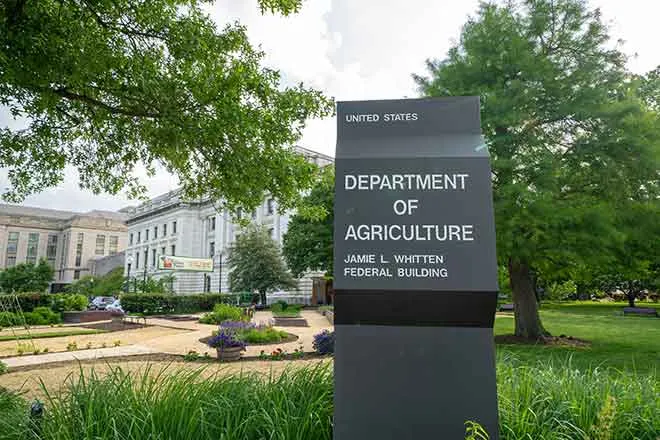
Report: Agribusiness monopolies harming farmers, consumers
Click play to listen to an abbreviated version of this article.
(Maryland News Connection) A new report looking at agribusiness consolidation found decades of mergers have reduced competition, leading to higher costs for farmers and consumers in Maryland and nationwide.
The report, titled "Kings Over the Necessaries of Life," showed a smaller number of large companies are using their market power to dominate nearly all sectors of the food system from inputs such as seeds and pesticides all the way to grocers.
Basel Musharbash, principal attorney for the Antimonopoly Counsel and the report's author, said the nonenforcement of the nation's antimonopoly laws since the 1980s has taken a toll.

© iStock - denizbayram
"We found that either a single firm or a small, tightly coordinated group of firms have amassed monopoly power," Musharbash explained. "The power to control prices or exclude competitors from a given market, in nearly every major industry that manufactures and sells farm inputs, that buys or processes farm crops, or that distributes food to the public."
Among other abuses, the report found companies have engineered shortages to keep prices high, as in the egg and fertilizer sectors. Despite rising prices for beef, consolidation has reduced the share of the consumer's dollar going to cattle farmers, which fell from 70 percent in the 1970s to 30 percent today.
The fertilizer sector has been gradually consolidated over decades, and the report showed three large firms are now in control. With one dominating the market for each of the three primary components of fertilizer: nitrogen, phosphate and potassium. The so-called Big Three are able to control prices in their respective markets but are also keeping competition out by controlling access to both the raw materials supply and the specialized distributors that sell fertilizer around the country.
The report found since the 1990s, the Big Three have raised fertilizer prices, cut output and reduced the quality and selection of fertilizer available in the U.S. Fertilizer prices increased 60 percent in 2021 and 132 percent the next year. Companies attributed the increases to supply-chain problems, but Musharbash found their own financial reports proved otherwise. He argued it amounts to extraction from farmers and ultimately, consumers.
"Because of their power, they've been able to reap Apple-style profits on products that haven't been improved materially since the 1960s," Musharbash asserted. "It's that sort of extraction that has been facilitated by the monopolization that we've seen across the agriculture sector."
The report includes an Agriculture Consolidation Data Hub where different sectors are outlined. Consolidation and its effects are tracked in agricultural finance, crop insurance, farm machinery, the grain and oilseed sector, along with fruits, vegetables, livestock, poultry, seed and fertilizer. The seed industry is now dominated by four large firms and has seen prices rise faster over the past 20 years than any other farm input.
Musharbash argued the nation needs to continue to expand recent efforts to enforce antitrust laws.
"It doesn't have to be this way," Musharbash contended. "These firms are smart and powerful. They've executed strategies over decades, the U.S. government allowed it because we made policy decisions not to enforce the antitrust laws to the fullest extent. We can take action to fix that."
He added after a period of neglect, the agriculture sector was also highly concentrated by the 1930s. But the report outlined how over a decade the Antitrust Division of the Justice Department and the Federal Trade Commission brought thousands of cases against cartel actors in the agricultural economy, eventually restoring competitive markets.
















